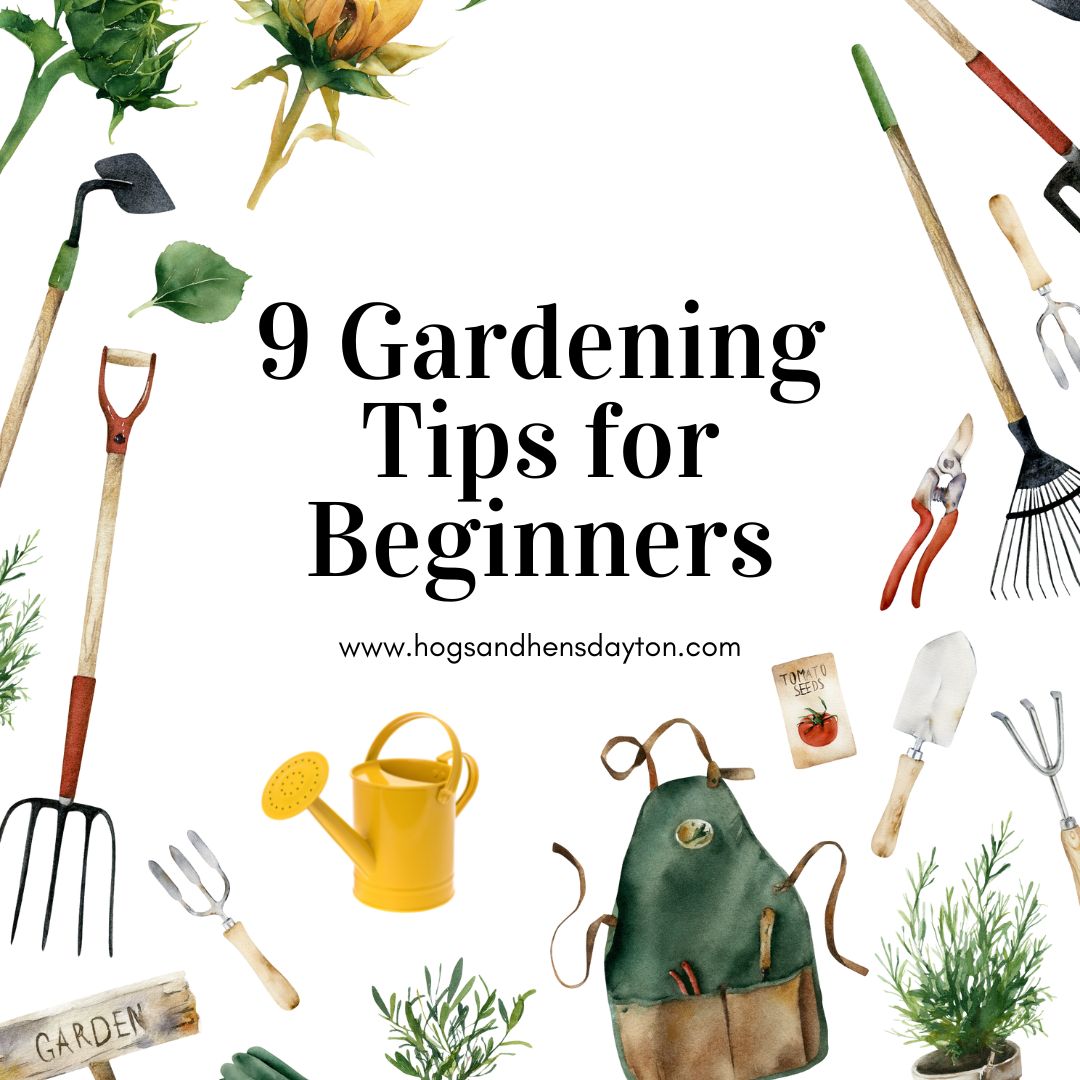
Have you tried planting your own garden in the past but ended up with mixed results? Or maybe you didn’t have any success at all? That can be incredibly frustrating, especially after all the time and energy that you put into it, leaving you thinking that you’ll just never have what it takes to have a green thumb. Don’t give up just yet! So whether it’s your first time gardening or another attempt, these are 9 tips for gardening that every beginner needs to know about.
1. Know Your Frost Dates– When it comes to gardening, it’s crucial for you to know when the average last frost of spring is for your garden and also when the average first frost of fall is for your garden. Planting too early or too late in the season can leave you waking up one morning to a gardener’s absolute worst nightmare, frost ruined crops. Knowing these dates will give you a much better idea of when to plant and the latest that you can safely harvest your crop.
2. Discover Your Zone– While you may be hoping to plant a particular tropical plant in your garden, it may not be able to survive your area’s climate if you live in a colder region. That’s why you need to know the growing zone where you will be gardening. Purchasing the right type of plants for your garden can greatly increase your success rate! For example, tropical plants like citrus will not grow well in cool climates with short growing seasons. A great way to check your zone is the USDA website found HERE.
3. Choose the Right Plants to Grow– Once you’ve figured out what hardiness zone you live in, it will be a lot easier narrow your list to plants that will thrive in your garden. Choosing the right plants will depend on the ability to provide them with the perfect growing conditions in your garden. For example, some plants require lots of sunlight each day, while others need hardly any, so you’ll want to plant them accordingly. Vining plants such as pole beans and cucumber require a trellis to flourish.
4. Follow the Sun– You may already have a rough idea of where you want your garden planted but there’s always the possibility that it may not be the best spot for it. To ensure that you have the best success, your garden needs to be in a location that receives appropriate sunlight each day for the crops you intend to grow. To figure that out, you’ll need to keep an eye on your yard over the next couple of days and see which spots receive the correct sunlight.
5. Keep Close to Water– In addition to sunlight, your garden should also be in a location that’s not too far from a water source. You should be able to run a hose to your garden so that you don’t end up having to make endless trips carrying water across your yard every time your plants are thirsty. When you’re wondering whether it’s time to water them, the best way to tell is to stick your finger in the soil to about your knuckle. If it’s dry, you know that it’s time to water most plants.
6. Make Sure You Have Good Soil– Probably one of the best bits of advice that you need to take from here is to make sure that you have the right soil to work with. Good soil will provide your garden with the proper drainage and all the nutrients necessary for your plants. Check out local universities for testing to learn ways that you can improve your current soil condition to make sure it is the best possible soil for your garden.
7. Consider Using Containers– Don’t have much gardening space in your yard? No problem! Containers are a great option for flowers, herbs, shrubs, and vegetables, while at the same time, protecting them from under- and over-watering. Using containers also gives you the ability to move your plants around your yard when you need to. Be sure that you are using the right size container for whatever plant that you decide to plant in it. Containers with drain holes in the bottom work great for preventing overwatering!
8. Apply a Layer of Mulch– Applying a layer of mulch around your garden will help you in many different ways. Layering 4 to 6 inches of mulch around your plants will help keep weeds to a minimum that try to steal nutrients and water away from your plants. Much will also help minimize the evaporation that’s taking place in your garden, which will keep you from having to water so much. As mulch breaks down, it adds organic material to your soil helping your plants thrive. Mulch can come in many forms, dried leaves that have been shredded, organic straw, and raw untreated wood chips, are a few of our favorite options at Hogs and Hens Urban Farm.
9. Remember to Feed Your Plants Regularly- Now that you’ve made sure to have good soil for your garden, your plants may need to be fed so that they’re getting all the right nutrients for optimal growth. Wondering when to begin feeding them? You’ll want to start feeding your plants regularly about a month after you plant them. A great option to go with would be a homemade fertilizer such as compost tea.
These are several gardening tips that every beginner needs to know about. While there are several other factors to making sure your garden is the best it can be, these 9 tips are sure to get you off to a great start!

